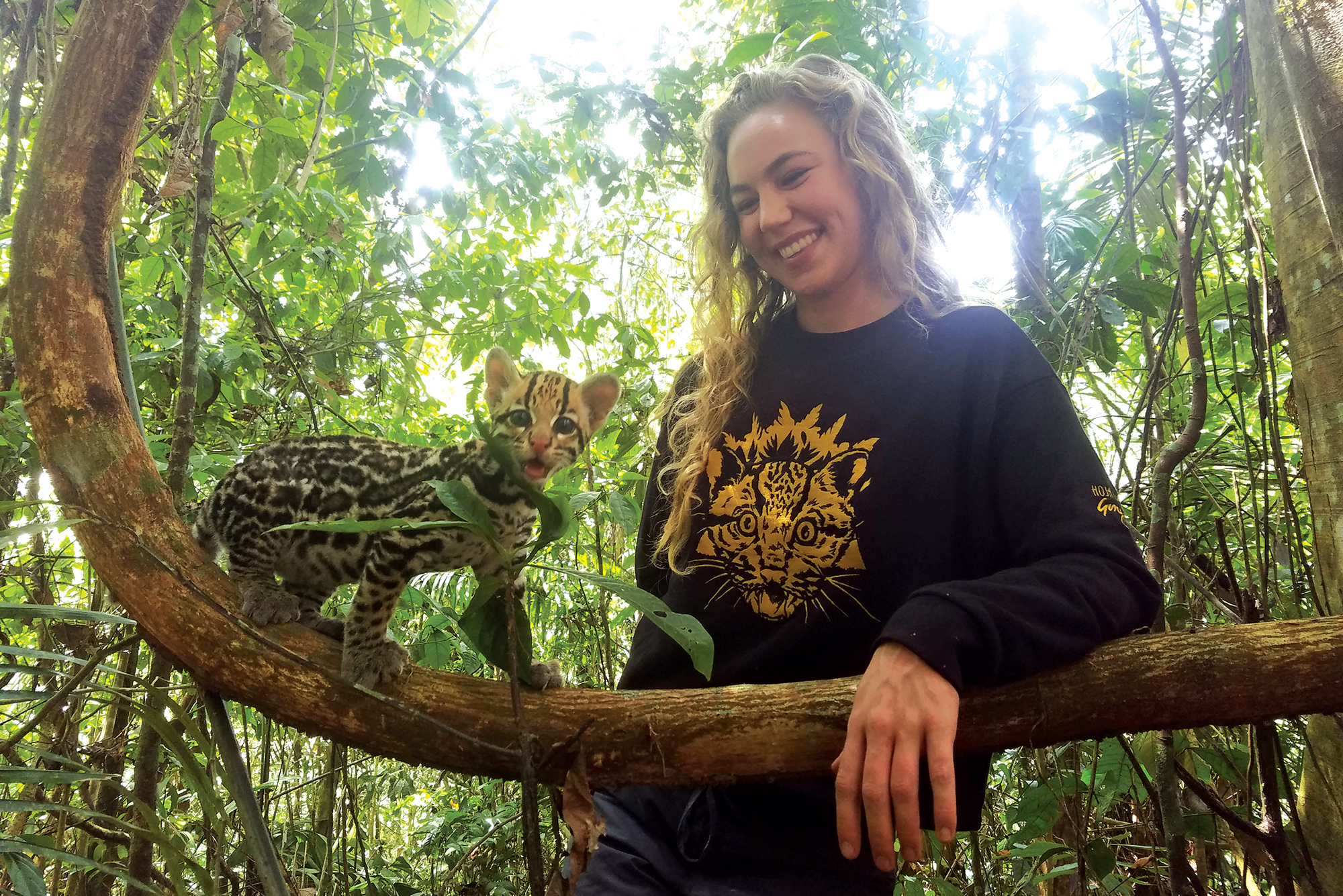

A childhood on Bainbridge Island surrounded with woods and wildlife instilled in Samantha Zwicker a love of wilderness. That led her to study conservation ecology at the UW and eventually travel to South America to learn and volunteer.
Today, she lives and works in the Peruvian Amazon. Her home is a collection of timber structures on platforms just feet above the rainforest floor. From there she leads Hoja Nueva, a nonprofit she started in 2015 to stem the loss of biodiversity and rehabilitate and reintroduce keystone species of wildlife. “It is the first and only free-wilding center for carnivores across Peru,” says Zwicker. The center’s territory covers nearly more than 7,000 acres of rainforest in Las Piedras. While it is remote, illegal logging, mining and poaching threaten the regional wildlife. “I’m in this beautiful, intact yet unprotected region,” she says.
Zwicker, ’12, ’15, is also completing her Ph.D. in the Quantitative Ecology Lab at the UW. And she is one of the lead characters in “Wildcat,” a documentary about the efforts she and a volunteer named Harry Turner, a British Army veteran, undertook to raise and rewild orphaned ocelot kittens. The film, which was released in December on Amazon Prime, focuses on Turner’s coping with depression and PTSD as well as the development of the ocelot they named Keanu as it grows able to survive on its own. Along with a compelling story, the film gives viewers a deeper view into the rainforest and the imposing threats to its existence.
Over the last few years, Zwicker has divided her time between Seattle and Peru, being a graduate student, running the center and completing her research. She’s eager to finish her degree and turn all of her energy to animal rescue and research in Peru full time, she says. “There’s so much work that needs to be done.”